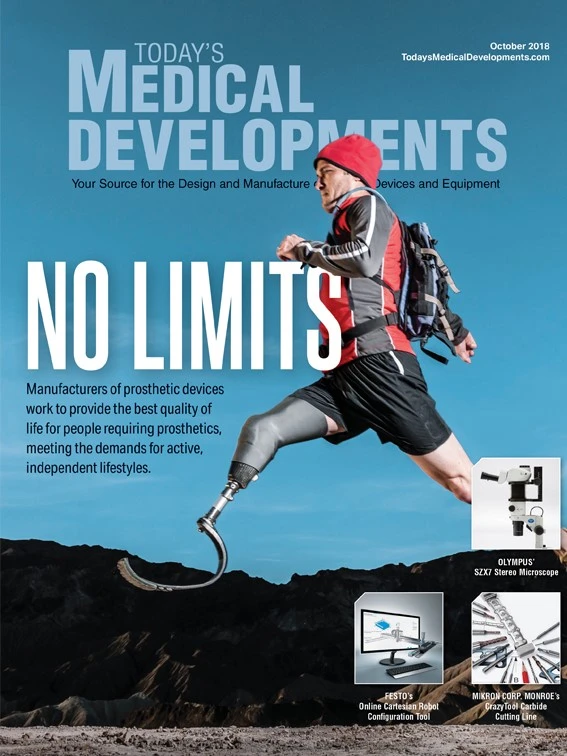Editor’s note: Part 2 of 3.
KPMG’s study, “Medical devices 2030: Making a power play to avoid the commodity trap,” predicts that throughout the next 12 years, the cardiovascular care journey will be fundamentally altered with the introduction of numerous innovations. Treatment protocols will significantly evolve, enabled by advances in technologies such as 3D printing and augmented/virtual reality, and the launches of several smart devices. The September issue looked at the future of ophthalmic care. Next issue, we look at orthopedics.
5 years:
- 3D-printed surgical planning models/instruments
- Artificial intelligence diagnosis
10 years:
- Thread-based diagnostics devices
- Biostamps
15 years:
- Intelligent balloon catheters
Manufacturers are integrating intelligence into their devices, offering real-time insights based on patient data. AliveCor has developed a medical-grade electrocardiogram (ECG/EKG) band, which can be used by smartwatch wearers to detect cardiac arrhythmia conditions causing stroke and measure heart rate and rhythm. The band works with a smart app that processes the data from device sensors, allowing its wearers to record voice memos to be sent along with the ECG/EKG to their doctor. ~ KPMG
Download KPMG’s 2030 report at https://tinyurl.com/yc42jolp.


Explore the October 2018 Issue
Check out more from this issue and find your next story to read.
Latest from Today's Medical Developments
- IMTS 2026 runs Sept. 14-19 at McCormick Place in Chicago, Illinois
- Master Bond’s MasterSil 800Med
- ZEISS celebrates 100 years of advancing innovation in the US
- Teleflex sells acute care and urology businesses for $2.03 billion
- HANNOVER MESSE: Where research and manufacturing meet
- What’s next for the design and manufacturing industry in 2026?
- Arcline to sell Medical Manufacturing Technologies to Perimeter Solutions
- Decline in German machine tool orders bottoming out





